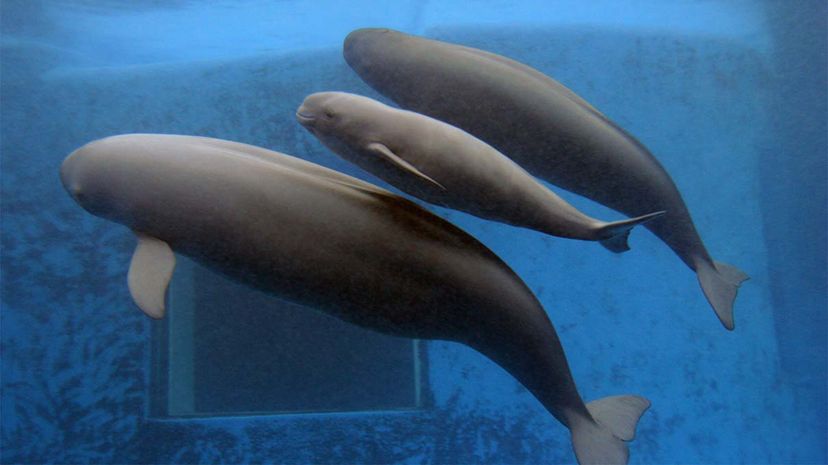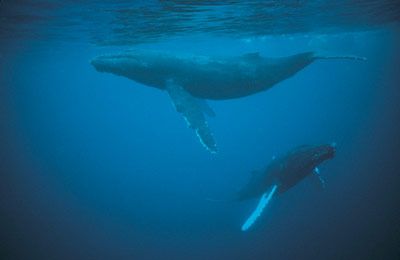
Dolphins and porpoises are different. You probably figured this was true, even though when you picture them in your mind's eye, they look exactly the same. Admit it.
But it turns out, dolphins and porpoises are very different. Both are highly intelligent and communicate by sonar, which is produced through a bulbous structure on the front of their heads called a melon. While there are many more species of dolphin out there — 32 species compared to the six known porpoise species — they both belong, like whales, to a group of marine mammals called Cetacea (from the Greek work ketos, “large sea creature”), the closest living relative of which are hippopotamuses. But if you were to look at a dolphin and a porpoise side by side, you'd likely say to yourself, "oh, that's not what I thought a porpoise looked like at all!"
Advertisement

The most obvious physical difference between the sleek, elongated dolphin and the more portly porpoise can be observed front and center on their faces. The snout, or beak, of a dolphin is elongated, as compared to the more squashed nose of a porpoise. A dolphin's teeth are cone-shaped, while a porpoise's are shaped like little shovels. Similarly, you can identify them by the shape of the fin on their backs: If you see a hooked-shaped fin poking out of the water, it's likely a dolphin, and a more triangular fin could belong to a porpoise.
Behaviorally, they're very different as well: Dolphins talk to each other a lot more than porpoises, and have a greater range of sound than their cousins. For instance, dolphins can make whistling noises that porpoises can't make — scientists think differences in the way their blowholes are shaped may account for the porpoise's inability to whistle.
Advertisement

